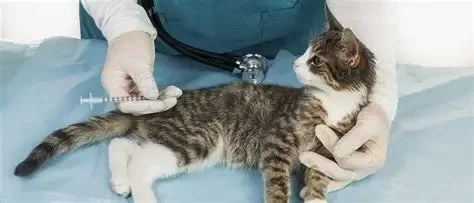Veterinary Vaccination Schedules: What Your Pet Needs and When Every Owner Should Know
- 1. Understanding Veterinary Vaccination Schedules
- 2. Core Vaccines Every Pet Needs
- 3. Additional Vaccines for Pets Based on Lifestyle
- 4. Puppy and Kitten Vaccination Schedules
- 5. Adult Pet Vaccination Schedules
- 6. How to Choose the Right Vaccine for Your Pet
- 7. Importance of Following a Vaccination Schedule
- 8. How Hidden Brook Veterinary Can Help
1. Understanding Veterinary Vaccination Schedules
Vaccinating your pet is one of the most important steps you can take to ensure their health and longevity. A veterinary vaccination schedule is designed to protect your pet from common but potentially deadly diseases. This schedule is based on a series of shots given at different times throughout their life, beginning as early as their first few weeks. Understanding the veterinary vaccination schedule is crucial for every pet owner to ensure their furry friends are well protected.
2. Core Vaccines Every Pet Needs
Core vaccines are essential for all pets, regardless of their lifestyle. These vaccines protect against diseases that are highly contagious and can be severe. For dogs, core vaccines typically include rabies, parvovirus, distemper, and adenovirus. For cats, core vaccines include rabies, feline calicivirus, feline herpesvirus-1, and panleukopenia.
Rabies Vaccination
Rabies is a fatal disease that affects both animals and humans. Most states in the U.S. require pets to receive the rabies vaccine, and it is typically administered at 12 to 16 weeks of age, with booster shots every 1-3 years.
Parvovirus (Dogs)
Parvovirus is a highly contagious virus that can cause severe gastrointestinal distress in puppies. This vaccine is typically given in a series, starting at 6-8 weeks, with boosters every 3-4 weeks until the puppy is about 16 weeks old.
Feline Panleukopenia (Cats)
Feline panleukopenia is a deadly virus that affects cats' white blood cells. It's a core vaccine that protects against this highly contagious disease and is usually given in a series for kittens starting at 8 weeks of age.
3. Additional Vaccines for Pets Based on Lifestyle
In addition to the core vaccines, some pets may require additional vaccines depending on their environment, lifestyle, and potential exposure to certain diseases. For example, pets that frequent boarding facilities or are exposed to other animals may benefit from vaccines for kennel cough (Bordetella), Lyme disease, and Leptospirosis. These vaccines are often given based on your pet’s exposure risks.
4. Puppy and Kitten Vaccination Schedules
Puppies and kittens are particularly vulnerable to disease, which is why vaccination is especially critical during their first few months of life. A typical vaccination schedule for puppies begins at 6 to 8 weeks of age, with a series of vaccines administered every 3-4 weeks until they are around 16 weeks old. Kittens typically follow a similar schedule, starting their vaccinations at 8 weeks of age.
Example of Puppy Vaccination Schedule
Here’s an example of a common puppy vaccination schedule:
- 6-8 weeks: Distemper, Parvovirus
- 10-12 weeks: Adenovirus, Parvovirus, and Bordetella
- 14-16 weeks: Rabies
5. Adult Pet Vaccination Schedules
Once your pet reaches adulthood, they will need booster shots to maintain immunity against certain diseases. Typically, adult dogs and cats require boosters for rabies, distemper, and other core vaccines every 1-3 years, depending on the vaccine type and local laws.
6. How to Choose the Right Vaccine for Your Pet
Choosing the right vaccine for your pet depends on factors such as their age, breed, lifestyle, and overall health. It is important to work with your veterinarian to determine which vaccines are necessary. For example, pets that are frequently exposed to other animals may need additional vaccines to protect against diseases like Bordetella (kennel cough).
7. Importance of Following a Vaccination Schedule
Vaccination schedules are designed to ensure your pet’s immunity is built up gradually and effectively. Missing a vaccination or delaying it can leave your pet vulnerable to disease. Regular follow-ups with your veterinarian are essential to ensure your pet stays on track with their vaccine schedule.
8. How Hidden Brook Veterinary Can Help
At Hidden Brook Veterinary, we offer expert advice and comprehensive vaccination services for pets of all ages. Our veterinarians can guide you through the vaccination process, ensuring your pet receives the necessary vaccines at the right times. Whether you need advice on the best vaccines for your pet's lifestyle or a complete vaccination package, we’re here to help you keep your pet safe and healthy.












